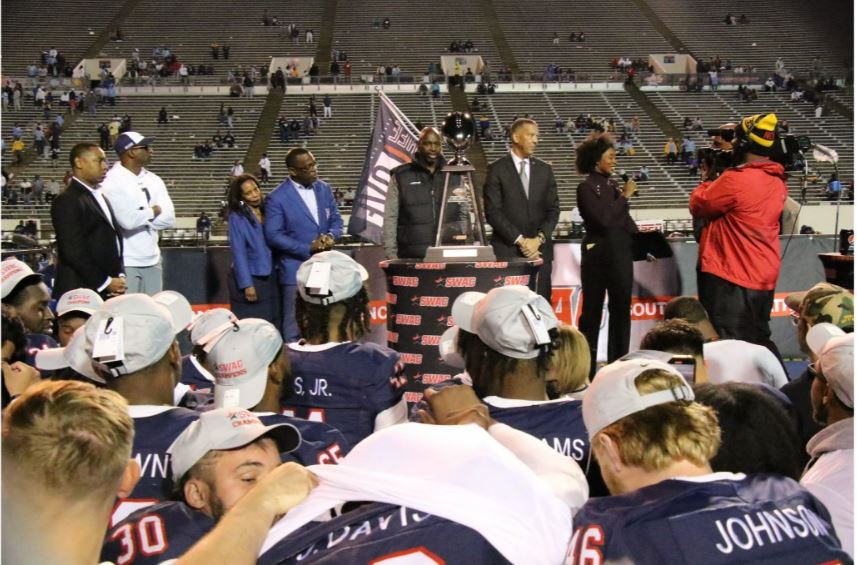The SWAC sports calendar might currently be in the middle of March Madness, but it’s never too soon to contemplate college football and mull what’s to come in the fall.
Storylines will be aplenty ahead of the 2023 season, including what to make of the conference now that it is without Deion Sanders and all the attention — favorable to not — he generated during his three seasons as Jackson State head coach.
SWAC Commissioner Charles McClelland, during a recent interview with longtime Alcorn State broadcaster Charles Edmond, said the league benefited from the opportunities that were provided as a result of Sanders’ association with the conference.
“Everyone talked about Coach Prime and how he exited. But the one thing that I’ve always stated is that from a SWAC office standpoint, we wanted to capitalize … and I think we did,” said McClelland. “We wanted to elevate the brand.
The commissioner quantified that impact in numerous ways.
“One thing nobody can deny about what Coach Prime brought was more eyeballs on us and we’ve been able to enhance the conference from a financial standpoint, visibility standpoint, and television standpoint. And that’s going to continue to grow,” he said.

In an interview with 60 Minutes last October, McClelland said that Sanders “opened up doors for the Southwestern Athletic Conference that we could not get into” otherwise.
The commissioner indicated that Sanders’ impact — or the so-called Prime effect — on attendance figures was notable for Jackson State relative to the rest of the SWAC but not necessarily extraordinary.
“When we track his impact from an attendance standpoint, it is measured in the thousands, not tens of thousands but in the thousands,” he said. “Some of our highly watched games definitely included Jackson State, but others included Southern, Florida A&M and Alcorn (State). So, people watched the games. Yes, Jackson State had more of higher watched games but across the board, our numbers were up. And that’s because more people saw the SWAC and saw it was a great brand of football.”
And greater interest in the SWAC meant an increase in not only attendance and viewership but corporate partners, McClelland explained.
“We’ve seen an increase in corporate partners wanting to be part of this. We’ve seen an increase in the number of games that our television partners want to put on,” he said. “So we’re going to be in a very good spot, and we appreciate it.”
In January, just ahead of the SWAC Championship Game, McClelland described the SWAC as “not the small black college conference anymore” in the landscape of DI athletics because of the economic strides it made.
McClelland spoke highly of the league’s partnership with ESPN and HBCUGO which featured several SWAC football games and men’s a women’s basketball games during the 2022-23 season.
During that same press conference in January, McClelland also mentioned that thanks to revenue growth, the SWAC had distributed more than $9 million to its 12 members — a high among all other FCS conferences and some FBS leagues.
“We’re not going to lose that momentum. It is going to be left up to use to continue to play a great brand of football,” McClelland told Edmond.








